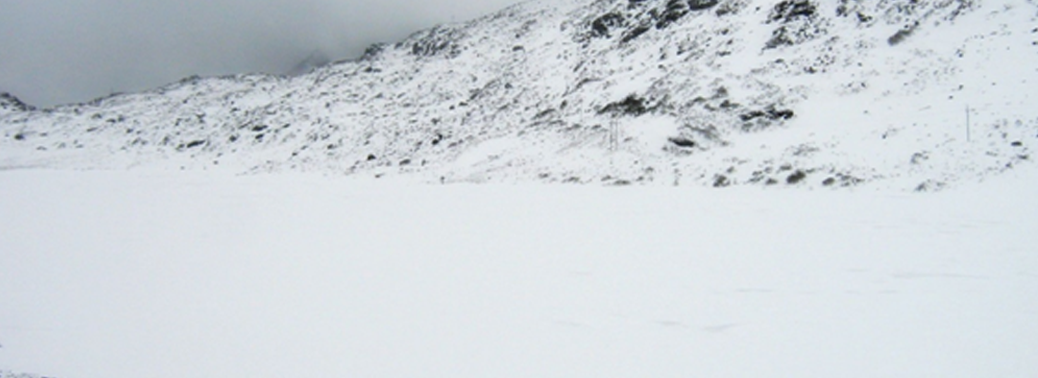SURGING GLACIERS IN KARAKORAM RANGE
09, May 2020

Prelims level : Geography
Mains level : GS-III Important Geophysical phenomena such as earthquakes, Tsunami, Volcanic activity, cyclone etc., geographical features and their location - changes in critical geographical features (including waterbodies and ice-caps) and in flora and fauna and the effects of such changes
Why in News?
- Scientists from Wadia Institute of Himalayan Geology have found a seasonal advancement in surge-type glaciers in the Karakoram Range of Ladakh.

Highlights:
- The seasonal advancement in 220 surge-type glaciers in the Karakoram Range of Ladakh has been detected through detailed assessment of using satellite images and thermal data.
- The scientists focused on the Shispare and Muchuhar glaciers, former tributaries of the once larger Hasanabad Glacier situated in Hunza Valley, Gilgit-Baltistan, Pakistan.
- ‘Surging’ or ‘Surge-type’ glaciers are a certain type of glaciers that have shown advancement in volume and length over a period of time.
- The behaviour of these glaciers, which represent 40% of the total glaciated area of the Karakoram goes against the normal trend of considerable reduction in volume and length of most glaciers in the Himalaya in recent decades.
- The team inferred that surge during winter is more hydrological controlled due to staggered subglacial flow and low amount of Meltwater.
- The surging terminates in summer due to channelized flow of meltwater and considerable heterogeneity in movement is also observed during summer and spring times.
- Surge movement produced the highest recorded Karakoram glacier surface flow rate and resulted in a glacier frontal advance of around 1500 m.
Concerns:
- Surging of glaciers is potentially catastrophic as it can lead to the destruction of villages, roads and bridges.
- It can also advance across a river valley and form an ice-dammed lake.
- These lakes can form catastrophic outburst floods.
- Therefore, monitoring of glacier surges, ice-dammed lake formation, and drainage is of Paramount Importance.
Significance:
- Subglacial processes and conditions like amount of debris, distribution of stored water, and temperature gradient are crucial to understand the diversity of surge-types and surgelike behavioural spectrum
- However, such information has been rare or unknown in the Karakoram, because ground-based observations are difficult to acquire.
- The study will help to understand the diversity of glacial behaviour and help make accurate assessments of individual glacier mass balances for disaster planning and management.
Location of Karakoram Range:
- The Karakoram is a mountain range spanning the borders of India, Pakistan and China with the northwest extremity of the range extending to Afghanistan and Tajikistan.
- It begins in the Wakhan Corridor (Afghanistan) in the west and encompasses the majority of Gilgit-Baltistan (PoK) and extends into Ladakh (India) and the disputed Aksai Chin region controlled by China. It is the second highest mountain range in the world after the Great Himalayas.
- The range is spread over a length of 482 km, and it covers a tract 46 to 48 km broad.
- Karakoram separates Kashmir from China, and South-central Asian States.
- It also protects Kashmir from the extreme cold winds of Siberia.
- The world’s second highest peak K2 (8611 m) is within this range.
- World famous glaciers, the Siachen Glacier, Masherbroom and Gaisherbroom are also in Karakoram range.






